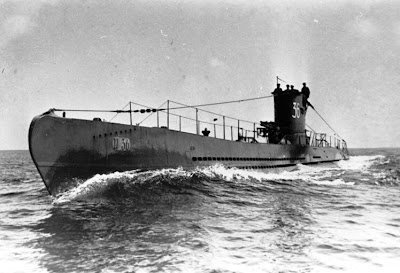30 October, 2010
Day 113 - Battle of Britain
"People need coal", says the leader in the Daily Express, on page 4. The front page headline is focused entirely on the war in Greece. The only reference to the Battle of Britain is a report on the appearance of the Italian Air Force in British skies.
Not even the growing ranks of the Air Ministry propaganda unit can give the air battle any higher profile. Fighter Command has disappeared, pro temp, from the script, and never again will it capture the headlines in the way it has done over the heady days of July through to September.
The reality of war is now upon people who are looking to their second winter of the conflict, dreading its onset. And well they might. The transport system is on the brink, and to make matters worse, trains are ordered to slow to 10mph through the innumerable air raids. The delays mean they are simply not delivering the coal. Despite the summer to replenish stocks, shortages of supply loom, replicating the winter before.
Thus complains the Express leader, "Mr Smith has no pile in his backyard, Mr Jones cannot order a ton and be sure of getting it. Again, we repeat. Risk is our normal lot. Safety must not impede speed. For we cannot be safe now, and we will not be safe ever unless we work at speed to throw off this great parasite of war that sucks at our happiness, our wealth, and our free will."
The great battles of the summer, with contrails criss-crossing the sky, are no more. Today, sullen October weather hampers flying. Only small numbers of Luftwaffe brave the rain and the autumnal gloom. Even the night raiders, who are used to flying in poor visibility, are discouraged by the poor weather.
In the public mind, the "few" is a distant memory, although operational intensity is as high as it has ever been (and higher than it was at the beginning of the battle) and they still are taking losses. An RAF fighter pilot's life is measured as 87 flying hours. Just today, the last day in which there are combat casualties, seven fighters are written off and three pilots are killed. Eight Luftwaffe aircraft are lost, including a Henschel 126 in a non-combat incident.
One RAF pilot is shot down over the Channel. He does not survive. A Me 109 pilot is also shot down over the Channel. He is rescued by Sennotflugkommando, unwounded. RAF Battle of Britain survivors eventually come to be lionised as "The Few". The Air Ministry's task, it seems, is to make sure there are as few of the few as possible.
Meanwhile several newspapers, without any great prominence, are publishing the latest figures for shipping losses. The week ended 20-21 October has been the blackest since the evacuation from Dunkirk. Britain has lost thirty-two ships, totalling 146,528 tons, Allied losses run to seven ships, totalling 24,686 tons, and six neutral ships totalling 26,816 tons are lost. The cumulative total is 198,939 tons,
We are told that Germany paid for her successes with U-boat losses, and that the Navy is increasing its precautions against U-boat attack, but there is no disguising the growing crisis. Despite this, there is no repeat of the Daily Mirror's sentiment from earlier in the month, even if here is writ large one important effect of the invasion threat. With so many patrol vessels kept in UK ports at immediate readiness, convoy escorts have been dangerously depleted.
Whether intended or not, Göring, his airmen, and the threat of invasion have assisted the blockade by drawing off resources which might otherwise have been used to protect shipping. Fighter Command may be taking the glory for the battle in the skies above Britain, but merchant seamen are paying the price.
COMMENT: Battle of Britain thread
Subscribe to:
Comments (Atom)


